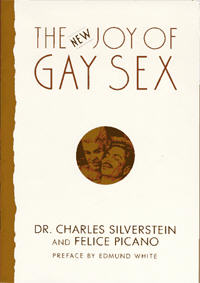 |


|
|
 Last week a federal judge in Wichita Falls, Texas struck down a local law that allowed petitioners to pull "objectionable" books from the public library. U.S. District Judge Jerry Buchmeyer ruled that the law, which called for removal of books if 300 or more library-card holders signed a petition, was unconstitutional. Last week a federal judge in Wichita Falls, Texas struck down a local law that allowed petitioners to pull "objectionable" books from the public library. U.S. District Judge Jerry Buchmeyer ruled that the law, which called for removal of books if 300 or more library-card holders signed a petition, was unconstitutional.
Not surprisingly, the law came about after parents and ministers complained about the library carrying two lesbian or gay-themed books: Daddy's Roommate by Michael Willhoite and Heather Has Two Mommies by Lesléa Newman. The Willhoite and Newman books, written by and for the children of gay parents, have been the subject of controversy and censorship ever since they were published, over a decade ago.
After all, intellectual freedom can exist only where these two essential conditions are met." Though the majority of the books featured during BBW were challenged rather than banned, the ALA argues that "a challenge is an attempt to ban or restrict materials, based upon the objections of a person or group. A successful challenge would result in materials being banned or restricted." Much of the time, would-be book challengers are motivated by a desire to "protect" children from deviant sexuality, unorthodox political or religious views or adult language. Books about sorcery, wizardry or magic, especially those written for children, are usually on or near the top of banned book lists. A good example is the "Harry Potter" series by J. K. Rowling. In addition to being the most popular books of 1999, the Potter books are also the most controversial, due to their "focus on wizardry and magic." Other occult or "Satanic" children's books that were challenged over the last few years include the Goosebumps and Fear Street series by R. L. Stine. Needless to say, books about sex - especially the queer variety - are frequently the target of self-appointed censors. Though Daddy's Roommate and Heather Has Two Mommies were not on the top ten list for 1999, they were number 2 and 9, respectively, for the decade between 1990-1999.
The First Amendment exists to protect unpopular minorities as well as popular majorities. As Supreme Court Justice William Brennan ruled in Texas v. Johnson: "If there is a bedrock principle underlying the First Amendment, it is that the Government may not prohibit the expression of an idea simply because society finds the idea itself offensive or disagreeable." This does not stop self-appointed "protectors" of children, whether parents or preachers or politicians, from trying to suppress "offensive" or "disagreeable" books, or ideas, or people. This is especially true today, when bashing "Hollywood" and other purveyors of culture is a major part of today's "culture wars". As lesbian, gay, bisexual or transgender people, we are aware that our very existence is "offensive" and "disagreeable" to many Americans. The American Family Association and other extremist groups have tried for years to banish GLBT people and GLBT issues from television, radio, movies, the theater and the Internet. Unable to censor what adults can read, hear, watch or log onto, our enemies seek to do so for minors, all in the name of "protecting" them, of course. When the National Endowment for the Arts, under Congressional pressure, refused to endow "controversial" artists, the first ones to suffer were Tim Miller and other GLBT artists. If Congress goes through with its threat to censor "Hollywood", the first films to be censored will be those that deal with queer lives and issues. And whenever there is a move, as in Wichita Falls, to remove books from public or school libraries, "our" books will be on the endangered lists. Banned Books Week reminds us of this ever-present danger. |
 © 1997-2000 BEI
© 1997-2000 BEI
 Other GLBT-themed books that are frequently challenged include The Color Purple by Alice Walker (17); Sex by Madonna (18); The New Joy of Gay Sex by Charles Silverstein and Felice Picano (24); Annie on My Mind by Nancy Garden (44); Sleeping Beauty Trilogy by Anne Rice as A. N. Roquelaure (55); and Jack by A. M. Homes. It should be noted that Boys and Sex by Wardell Pomeroy was # 61 in the nineties' list, while Girls and Sex, by the same author, was only # 98. Apparently, as in the case of the Boy Scouts and Girl Scouts, many people believe that, when it comes to sex, boys need much greater supervision.
Other GLBT-themed books that are frequently challenged include The Color Purple by Alice Walker (17); Sex by Madonna (18); The New Joy of Gay Sex by Charles Silverstein and Felice Picano (24); Annie on My Mind by Nancy Garden (44); Sleeping Beauty Trilogy by Anne Rice as A. N. Roquelaure (55); and Jack by A. M. Homes. It should be noted that Boys and Sex by Wardell Pomeroy was # 61 in the nineties' list, while Girls and Sex, by the same author, was only # 98. Apparently, as in the case of the Boy Scouts and Girl Scouts, many people believe that, when it comes to sex, boys need much greater supervision.